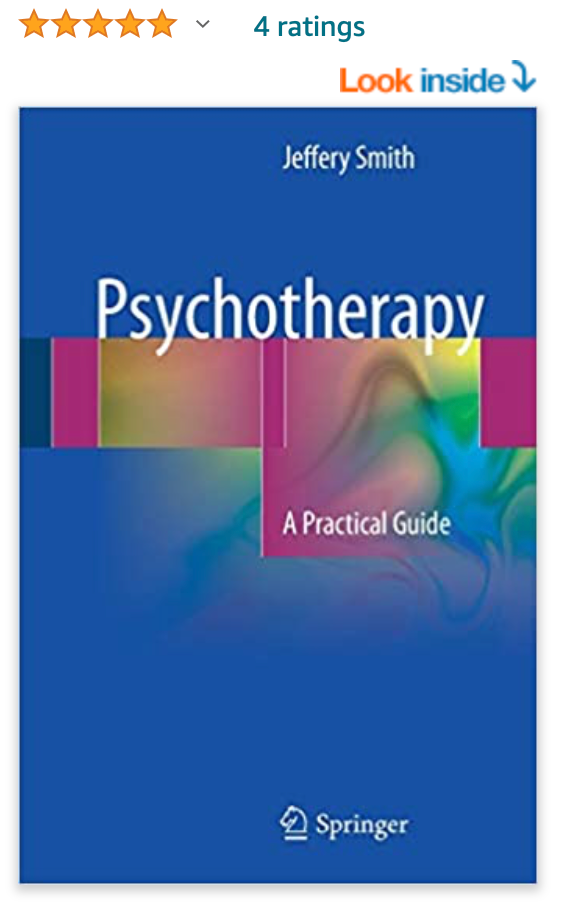
“Enlightening, Inspiring, Even Soothing”
Luz, past learner
• Navigate with confidence because you know what's going on underneath
• Make healing moments happen rather than waiting for them
• Free yourself from constraints of "branded" therapies
• Give patients the flexible and authentic approach they crave
I found this course to be incredibly helpful
Dr. Smith’s focus on understanding the Common Infrastructure of psychotherapy provided a better understanding of the therapeutic process and made it clearer. The course structure was really well organized, with a strong emphasis on building a solid foundation through key milestones. It’s given me the tools to navigate therapy sessions effectively. I am genuinely thankful for the valuable knowledge and skills I’ve gained from this course, and I’m looking forward to attending his next course.
Fauzia
It has been very enlightening, inspiring and even soothing
I highly recommend this course to you. It doesn't matter if your a new or experienced therapist. This integrative perspective allows you to understand how therapy works and why different schools can provide very satisfactory results
Dr. Smith's warmth, expertise, and affability make the learning experience very enjoyable. His work has been truly inspiring and enlightening and I'm looking forward to keep learning from his profound knowledge.
Luz Elena Langle Gómez
Debunking confusion surrounding different types of therapy
This course integrated my scattered thoughts about different schools of therapy and given me a singular, comprehensive framework excellent for application onto any case Excellent for anyone wanting to have a more human approach to therapy and debunking the confusions surrounding different types of therapy
Fatima
Do you want to:
- Be skilled at recognizing and supporting fundamental change processes?
- Avoid limiting yourself to a single brand of therapy but make use of techniques learned from any orientation or therapy?
- Learn the common infrastructure of all therapies and match technique to specific processes?
- Experience ten one-hour interactive sessions with Dr. Smith and the team to make contemporary science practical, regardless of orientation?

This course was pioneered by the Team in January, 2023
Four members of the original group collaborated in developing this course to meet a need among psychiatry residents, other trainees and practicing therapists. Zoom classes were recorded for inclusion here.

Course Milestones: You will be able to--
- 1. Master the healing moment. (3 sessions)
- Learn how to support Step 1 and Step 2 of the Healing Moment under varying conditions.
- 2. Formulate the target problem and path to change. (3 Sessions)
- Understand how the wide variety of Entrenched Maladaptive Patterns start out as ways to avoid limbic emotions and how to plan for change.
- 3. Relate: Working with the nonspecific factors that affect healing and growth. (2 Sessions)
- Especially building and maintaining a positive therapeutic relationship.
- 4. Explore how foundational processes relate to existing therapies and orientations. (2 Sessions)
- We look at how the present framework provides a Rosetta Stone to translate between psychodynamic, behavioral, and experiential therapies.
Class by Class Course Outline Here:
Howtherapyworks Coaching Community
Free 3 month community membership included with the course
You will be glad you joined this vibrant community, connecting you with like-minded therapists and including regular group coaching with Dr. Smith, along with exclusive content and guidance around the questions and difficult client situations that are part of every practice and every learning trajectory.

"Learning and practicing psychotherapy is so much clearer when you understand the underlying processes. And you'll be a better therapist, too!"

Dr. Jeffery Smith, an internationally recognized leader, has dedicated his career to helping therapists apply contemporary science to daily practice, regardless of orientation.
-
Leader of the American Psychiatric Association Psychotherapy Caucus
-
Clinical Professor of Psychiatry at New York Medical College
-
President Elect of the international Society for the Exploration of Psychotherapy Integration
-
Author of the uniquely "nondenominational" textbook, Psychotherapy a Practical Guide (Springer, 2017)
-
Author of TIFT, Tuesday is for Therapists, the newsletter and blog from HowTherapyWorks.com.
-
HowTherapyWorks Podcast: in interview format with Amelie Southwood, LMHC, follows the textbook chapter by chapter.
-
Practicing in Scarsdale, New York in English and French.

Here is what leaders in the field have said about Dr. Smith’s textbook, Psychotherapy: a Practical Guide.
“It is remarkable how much Jeffery Smith packs into a small, readable volume. Covering a wide range of theoretical perspectives and clinical challenges, Smith lays out clearly and in detail how he works and offers a valuable integrative understanding of the essential elements in good clinical work. An important contribution to the field.”
Paul Wachtel, PhD, Author of Therapeutic Communication: What to say when
“A thoughtful, integrative guide to psychotherapy from a wise and seasoned psychiatrist. Jeffery Smith demonstrates charity to all therapies that work and malice only toward the rigid and ineffective. His emphasis on entrenched dysfunctional patterns and affect avoidance will prove useful to practitioners of all professions and persuasions.”
John C. Norcross, PhD, Distinguished Professor, University of Scranton & SUNY Upstate Medical University, co-editor of Handbook of Psychotherapy Integration.
Build Clarity and Confidence in 10 Self-Paced Online Sessions
- You want to be am excellent therapist but training inadequate?
- Learning focused on one technique that doesn't fit everyone.
- Confused by over-complicated and incompatible explanations?
Our mission is to help therapists go beyond the limits of single-brand therapies by integrating 21st Century knowledge of change processes into every day practice.
Gain a framework that helps practicing therapists navigate and trainees make sense of didactics, supervision, and patient sessions.
My favorite supervisor said, "Mix it up with the patient!" You can do that when you are grounded in what is going on and what to do next.
Jeffery Smith MD
Article by Dr. Smith: Why Psychotherapy Needs an Updated Framework
Disclaimers
From my own experience and that of many practitioners, this type of course will give the learner a firm basis in knowledge, but becoming a great therapist also requires supervised practice. Our long range goal is to offer credentialing to experienced therapists who demonstrate mastery of this material and want to be listed as providing supervision compatible with the Affect Avoidance Model.
In addition, I have hesitated to say that access is "lifetime" because I can't know the future. I hope Howtherapyworks.com and this course continue to grow and develop for a very long time.

